Demo Answer: Descriptive Writing | English Language for GCSE/IGCSE - Class 10 PDF Download
| Table of contents |

|
| Introduction |

|
| Planning your descriptive writing |

|
| Descriptive Writing Model Answer |

|
| Unannotated Model Answer |

|
| Summary |

|
Introduction
In Paper 2's Section B, you'll encounter four titles to choose from: Questions 2 and 3 focus on descriptive writing, while Questions 4 and 5 center on narrative writing. Each option carries a 40-mark value, and you're required to select only one (either descriptive or narrative). Although descriptive writing may include narrative elements, and vice versa, it's crucial to recognize the difference between the two styles of writing and tailor your responses accordingly. Therefore, carefully evaluate all four choices before deciding which one will showcase your writing skills most effectively.
The following guide will provide you with a descriptive writing model answer, based on a past paper task. It is divided into:
- Planning your descriptive writing
- Descriptive writing model answer
- Unannotated model answer
- Summary
Planning your descriptive writing
After selecting a title, allocate 10 minutes for planning your writing.
For instance, consider the task: "Describe trying to sleep before an important day."
Utilize the "panoramic, zoom, single line, shift, shift, panoramic" structure for planning your response.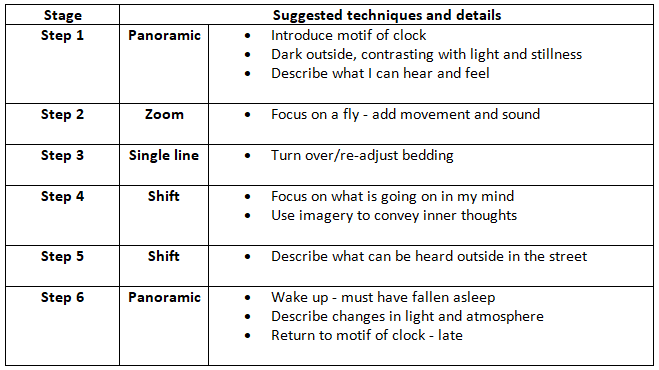
Descriptive Writing Model Answer
The exemplary response showcased here embodies a high-quality solution to the provided task.
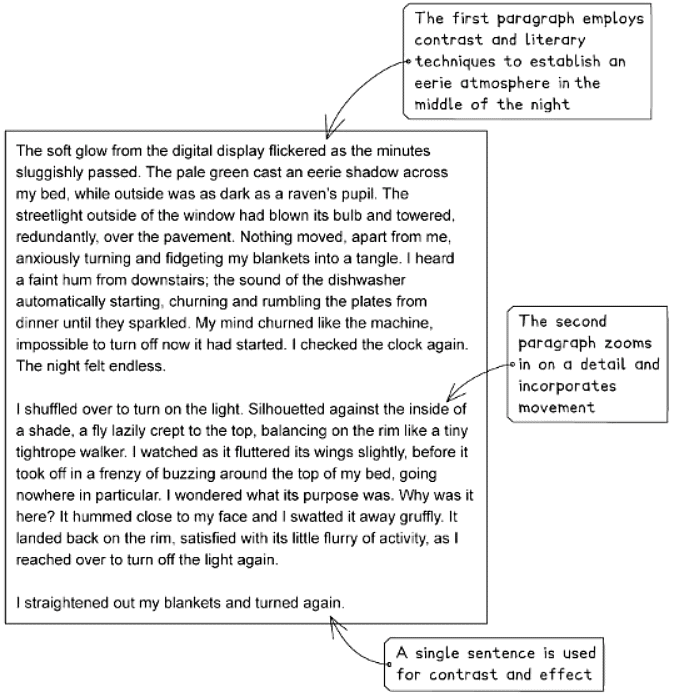
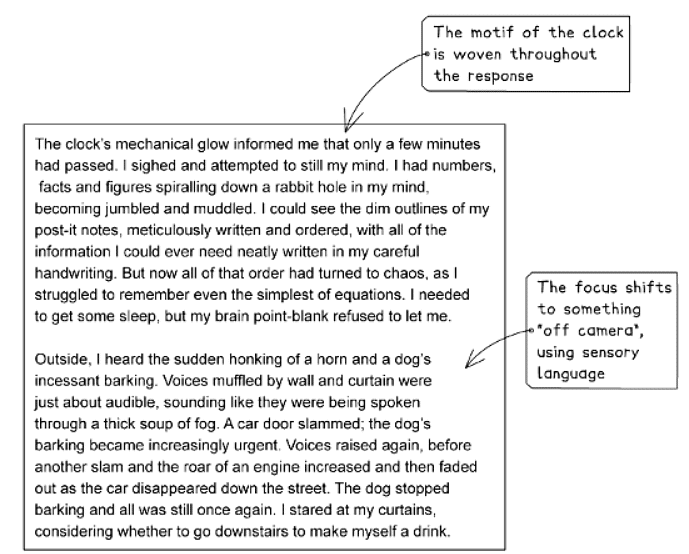
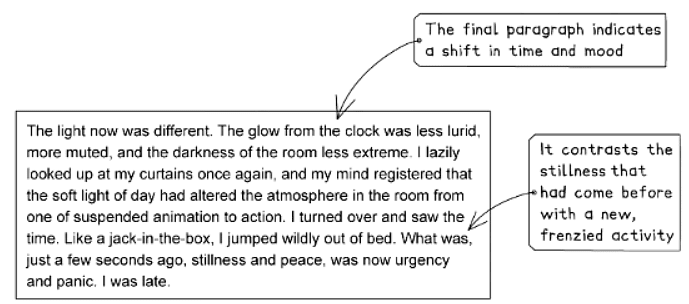
Unannotated Model Answer
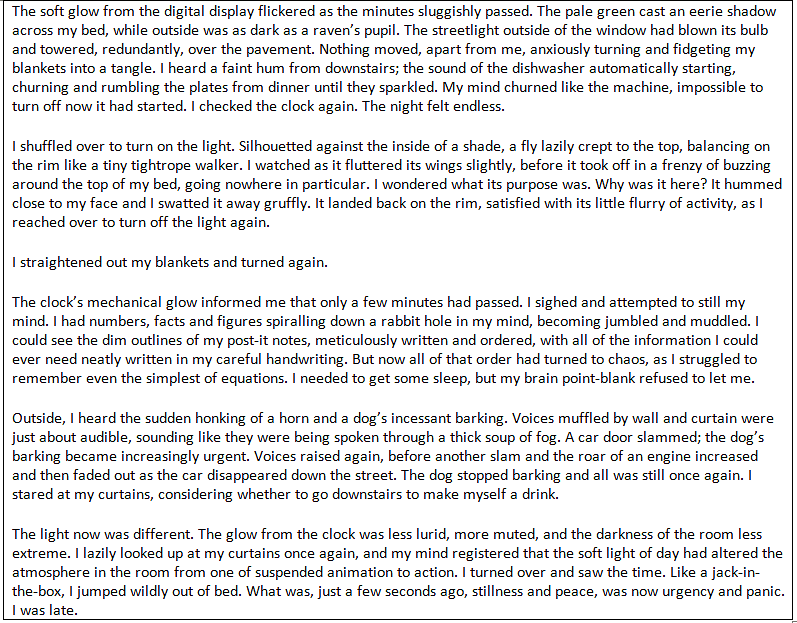
Commentary:
- The initial paragraph skillfully employs contrasting elements and literary devices to establish a haunting ambiance typical of midnight.
- The subsequent paragraph delves into intricate details and incorporates movement effectively.
- A single sentence is strategically used to create contrast and evoke a specific effect.
- The recurring motif of the clock is intricately woven throughout the response.
- The narrative shifts focus to something "off-camera," utilizing vivid sensory language.
- The final paragraph signifies a change in both time and mood, juxtaposing tranquility with activity.
Summary
- When writing, envision describing a scene as observed through a camera lens.
- Allocate 10 minutes for planning your writing, following the suggested six-step structure.
- Set aside five minutes for reviewing your writing, checking for evident errors in spelling, grammar, or punctuation.
- Utilize sensory language, shifts in perspective, figurative language, and contrasts to enhance the depth and appeal of your writing.
- Avoid incorporating dialogue into your descriptive writing.
- Diversify your sentence and paragraph lengths to maintain reader engagement.
- Infuse movement into your descriptions to make them more vivid and engaging.
|
17 videos|45 docs
|














